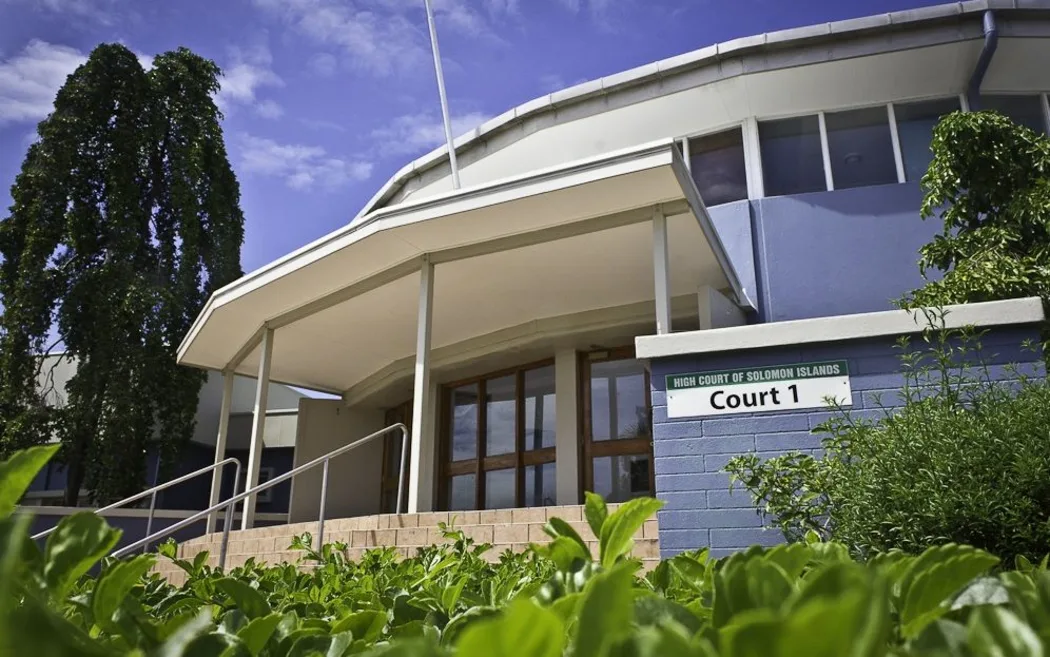The Solomon Islands High Court has granted declaration sought by the Leader of Opposition, Mathew Wale that the nomination period up to the date of the election of the Prime Minister does not comply with the mandatory four-day period as stated in Schedule 2 1 (b) of the Constitution.
The Court however, declined to grant declaration and relief sought that the Prime Minister was not validly elected and that he has been affected by the error of not complying with Schedule 2 1 (b) of the Constitution.
Six days after the election of the Prime Minister, Wale sought declaration orders and relief against the Governor General (1st Defendant), the Prime Minister (2nd Defendant) and the Attorney General (3rd Defendant).
The case constitutionally challenged the process starting from the nomination period from 29 to 30 April to the election date on 02 May 2024.
On the nomination process, Chief Justice Sir Albert Palmer granted the declaration sought that the nomination period up to the date of the election of the Prime Minister does not comply with the mandatory four days’ period.
Despite submission made by the Defence Counsel that the maximum period for nominations is four days and was reduced and at the discretion of the Governor General, Chief Justice Palmer ruled in favour of Wale that “there is a clear four days between the date and time for delivery of nominations to the election meeting.”
“So where is the starting point? When the Governor General issues a notice to each member, he first of all must set the date, place and time of the election meeting; that is the first necessary step.”
“The second thing he does is set the place and the date and time on which nomination papers are to be delivered to him but before he does that, the next phrase dictates the time frame which those dates and times are to be settled.”
“It states which time shall be not later than four days before the date appointed for the election meeting.”
“So what time is being referred to here? It is the date and time on which nomination papers are to be delivered to the Governor General. The next part which time shall not be later than four days before the date appointed for the election meeting.”
On the issue that the Prime Minister was not validly elected because of the error, Sir Palmer failed to accept as the Governor General has been vested under the Constitution to determine any dispute that arises whose determination shall be final and not questioned in any proceeding.
“What is challenged is that during the process, he had erred by not ensuring that there was a period of time of four clear days between the date and time when nominations are to be delivered, and the date and time for the election meeting. It this instance, there was only a time period of two days and not the prescribed period of four clear days.”
“In my considered view, this is an error within jurisdiction and not a jurisdictional error that is fatal to the election process, results in nullity of all subsequent processes and warrants and intervention of this Court.”
The Chief Justice also failed to accept that Wale has been affected by the error that the nomination period up to the date of the election of the Prime Minister does not comply with the mandatory four days’ period as stated in Schedule 2 1 (b) of the Constitution.
This is because his right to be nominated as Prime Minister was not affected by the error. There is no evidence that he had the numbers or no indications of anyone joining his group at that time.
“I am not satisfied that accordingly as well that the threshold of his interest are being or likely to be affected, not achieved and accordingly this claim for declaratory orders and relief under Section 83 (1) of the Constitution should also be dismissed herewith.”
Sir Palmer declined the consequential relief sought by Wale with costs to be agreed between the parties, failing which orders for costs will be issued.














